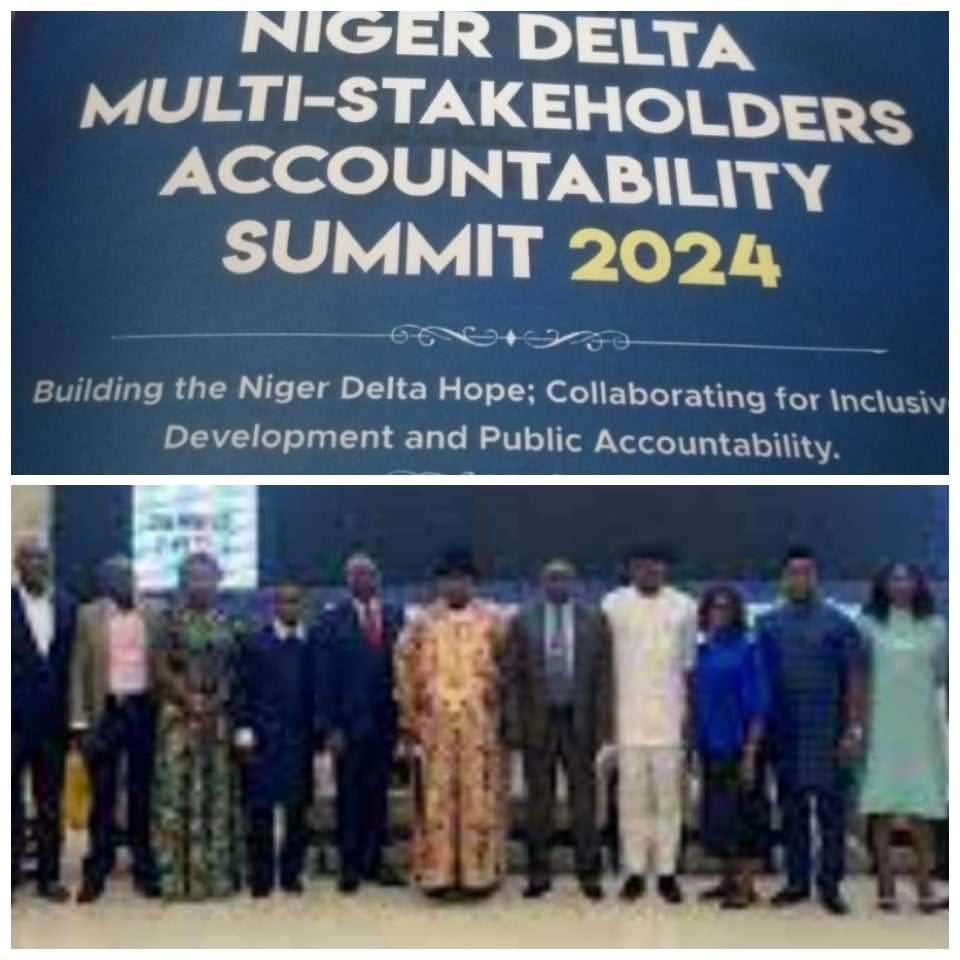Determined to initiate a transformative change needed across the Niger delta through discussions, engagements and furtherance of the Social Action (The Social Development Integrated Center) advocacy for transparency and accountability in the management of proceeds from natural resources (oil & gas) on Thursday organized a one-day Multi-Stakeholders Development and Accountability Summit with the theme “Building the Niger Delta Hope: Collaborating for Inclusive Development and Public Accountability.”
The summit which held in Port Harcourt, focused on collaborations for inclusive Development, Public accountability in the development process, divestment of International Oil Companies’ (IOC’s) from onshore operation and the need to address historical environmental challenges that has plagued the region.
The workshop which drew stakeholders from both the private and public sectors – traditional rulers, anti-corruption agencies (ICPC) academia, CSOs, media, community leaders, policymakers, industry professionals and active citizens of the Niger Delta region and beyond was facilitated by Social Development Integrated Center (Social Action) in collaboration with the ICPC and with the support from MacArthur Foundation reiterate its call on president Tinubu not to grant further divestment approvals to IOCs until there is a definitive enforceable and transparent mechanism that compels these corporations to address environmental degradation and social abuse in the Niger delta
The summit Instructively, was guided by 3 core objectives and they are as follows:
Enhance Multi- Stakeholders Dialogue: To facilitate a broad –based conversation aimed at reimagining the NDDC’s role and unlocking new avenues for transformative regional development.
Cultivate Collaboration: To strengthen partnerships among diverse stakeholders, thereby propelling forward for the Niger Delta’s Developmental agenda.
Embed Accountability: To integrate principles of accountability into public projects, addressing the profound developmental needs of the Niger Delta and fostering inclusive, sustainable growth.
At the end of the presentations, there was a panel session which was followed by a question, comments and answer session that culminated into the gathering of feedback that led to reaching some specific thoughts for next steps and were also adopted by participants present as resolutions of the dialogue.
The following resolutions are representative and reflect the true position of participants at the Niger Delta Multi-Stakeholders Development.
Recommendations:
Remove opacity in government and community businesses
Protect all NDDC projects and installations
Monitor and report all NDDC project execution to ensure quality
Civil society organizations must see themselves as part of the community
Adopt and promote the National Ethics and Integrity Policy (NIEP)
Promote good governance at all levels – (National, sub-national and community).
Sanctions for non-compliance with procurement Act and other statutory laws of the NDDC.
Niger Delta youth should imbibe the culture of advocating for accountability, transparency (open data / Budget) and hard-work.
Need for Niger Delta stakeholders to see all executed projects as their own and this will close the gap between the NDDC and the people of the Niger Delta region.
That there should be inclusivity of all genders for effective collaboration especially during needs assessment.
The NDDC should ensure that needs assessments are carried out in collaboration with various community stakeholders.
That there must be effective communication and knowledge sharing (possibly in the local language) between the operators (IOCs) and primary stakeholders (Community Gatekeepers & the people) during divestment process and the ongoing energy transition.
NDDC must have a clearly defined procurement plan for every given year and this must be published.
The citizens must be knowledgeable enough to ask questions regarding procurement activities in the NDDC and the Niger Delta region in general.
Technology must be deployed in all procurement processes.
Capacity building training should be organized for stakeholders to aid them in the identification and tackling corruption.
That there is need for ICPC to introduce community accountability to ensure judicious use of resources.
That there should be a state level plan for a Niger Delta beyond oil.
That there should be a clean up program for the entire Niger Delta region.
That there should be a diversification to tourism as it has the potential to generate huge revenue.
Communique Signed by:
Social Development Integrated Center (Social Action).
admin@saction.org



